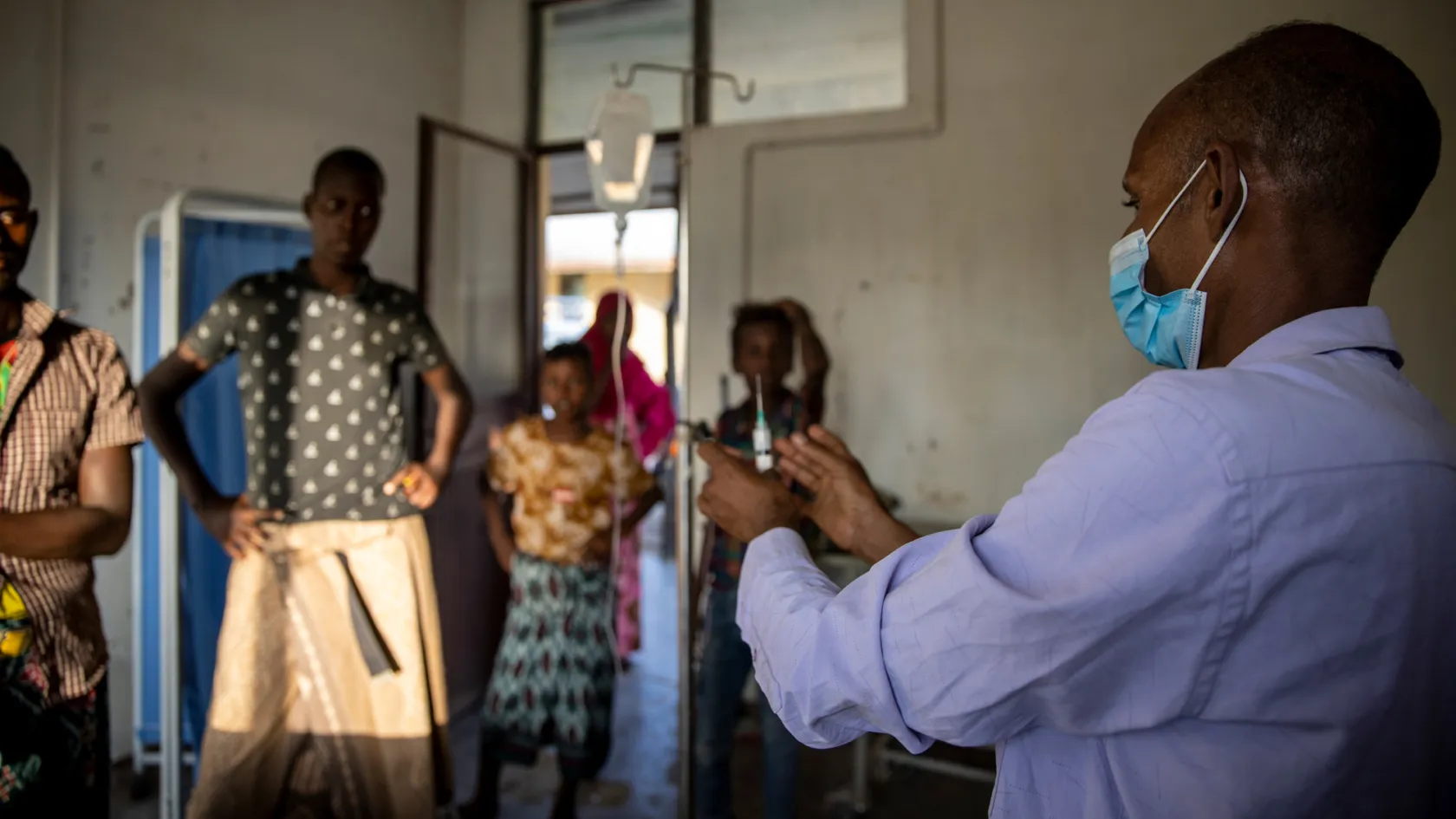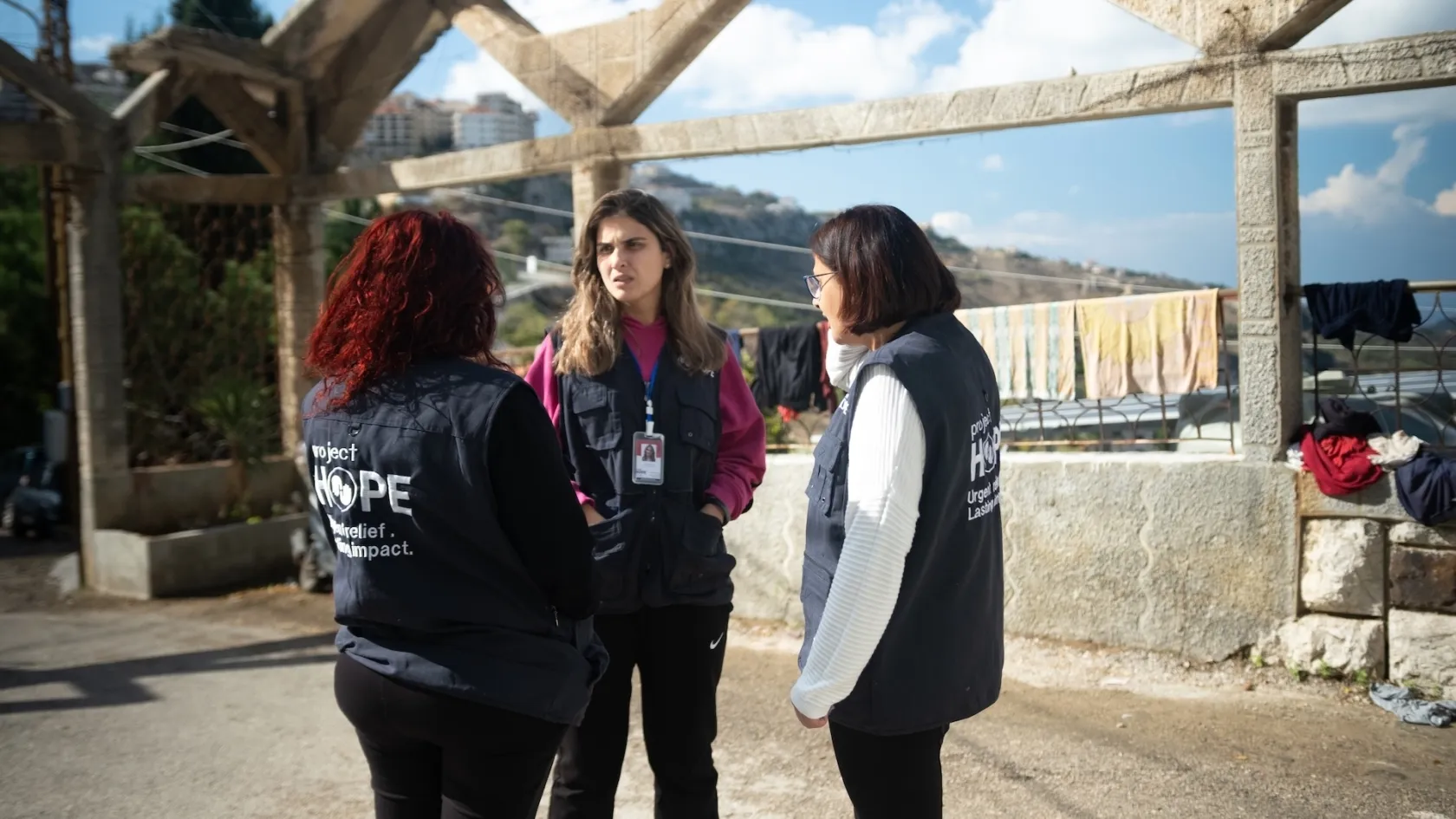‘People are Psychologically Collapsing’: A Q&A from Sudan
More than half of people in Sudan require urgent humanitarian support. Learn more about the crisis in this Q&A with Shaza Mohamed, executive director of our local partner, Nada Elazhar for Disaster Prevention and Sustainable Development (NADA).
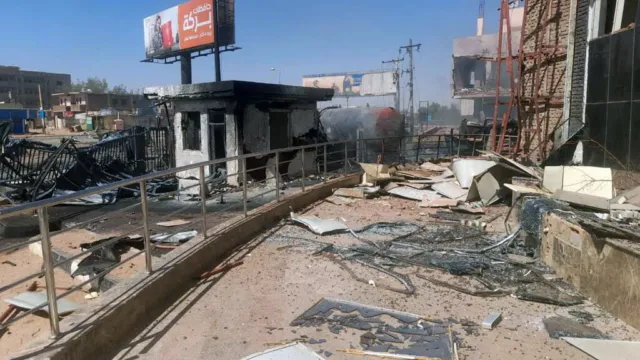
Ongoing conflict in Sudan has killed 3,977 people, injured 12,000, and displaced more than 3 million since April 15.
Under attack, the North African country’s health system is collapsing, with most hospitals closed and health workers struggling to access the medicines and supplies they need to care for their communities. Right now, more than 11 million people in Sudan need urgent health assistance, including 2.6 million women and girls of reproductive age.
Through Nada Elazhar for Disaster Prevention and Sustainable Development (NADA), Project HOPE is providing vital training for health care workers, sexual and gender-based violence case management, and mental health and psychosocial support.
Read on to learn more about the current situation in Sudan and how NADA and Project HOPE are responding in this Q&A with Shaza Mohamed, executive director of NADA and one of the millions of people forced to flee home.
What’s the current situation in Sudan? Has the situation deteriorated in the past few days and weeks?
We’re entering the fourth month of war, and the situation is deteriorating day after day. People from the capital city of Khartoum are displaced. They’ve fled their houses, and many of them couldn’t take their ID cards or passports so they can’t cross official borders to reach safe places.
People are without documentation, food, water, shelter, and money. Many people who are left in Khartoum have been living without power or water. There’s also war fatigue. People are psychologically collapsing. The health system has almost completely shut down in Khartoum and the capacities of health systems in nearby states simply cannot accommodate all of the people who are currently displaced.
It’s been three months since fighting broke out between the Sudanese Armed Forces and the Rapid Support Forces. Is there any truce or end in sight?
No one knows when this conflict will end. The situation is really unpredictable. We need both parties to sit down, talk, negotiate, and find a way forward towards peace.
As a civilian of Sudan, I do believe that we already suffer a lot. Everything is deteriorating — our health system, our economic system, and even our social fabric is collapsing. The social deterioration is just as serious and dangerous as the health and economic situations. The hate feelings growing between tribes and communities will lead to a very chronic civil war.
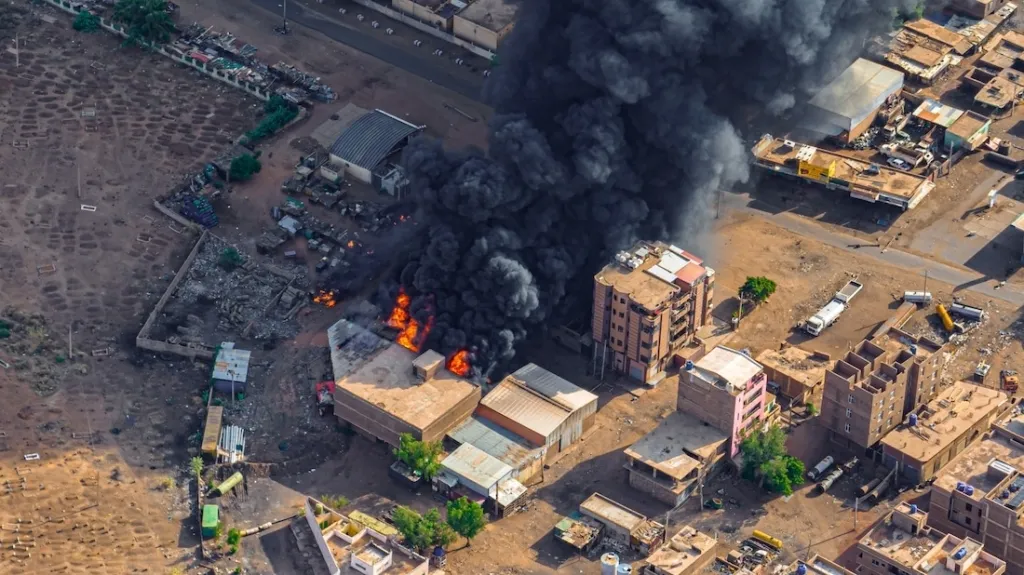
Can you tell us about the impact fighting has had on the health care system?
The conflict started April 15, and by the end of April, 65% of hospitals in Khartoum were out of operation. When something collapses at the capital level, everything collapses. For instance, kidney failure, cancer, and chronic disease patients were all suffering because supplies that are usually distributed on a monthly basis were stuck in Khartoum. The whole system was down.
We can now say that around 90% of all hospitals and health facilities in Khartoum are closed and out of service. A very limited number of hospitals are working, and access to those facilities is an issue.
By the end of April, 65% of hospitals in Khartoum were out of operation. … We can now say that around 90% of all hospitals and health facilities in Khartoum are closed and out of service.
It’s estimated over 3 million people have been displaced by the conflict, including 700,000 into neighboring countries. What are the greatest health challenges you’re seeing among displaced populations, and how is NADA responding to them?
One of the big needs for displaced populations is the provision of psychosocial support. NADA provides individual counseling and case management services including referral services. When we can’t provide it in person, as Sudan is a very big country, we provide it remotely.
Access is one of our greatest constraints. Most of the time, survivors of sexual and gender-based violence are in very remote areas, and remote psychosocial support is not easy because we need to build trust. It’s not easy to share very private information with someone you don’t know — especially when they are not with you in person.
Our teams are also facing some difficulties with remote communications because of poor connectivity and a limited availability of services. If we come across somebody who needs help — like food, a personal hygiene kit, or medication — we’d refer them to services, but right now these services aren’t available.
We still try to reach people and provide them with what we can, but there are huge humanitarian gaps in the provision of food, especially nutrition items for children, and in health services. The majority of women and children are staying in gathering areas where there is no access to basic services like water and latrines, and unfortunately now in some places the rainy season is already starting.
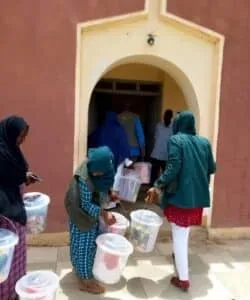
We also have a problem when it comes to the community with regard to gender-based violence and general protection issues. Communities where people are now displaced are not familiar with humanitarian work and sometimes they resist the provision of services to people in need. There is also a lack of a legal system. In the case of the GBV survivors, it’s very important to get official documents from the police or court if you want to report a case, but now the systems and courts are not functioning. NADA is trying to advocate to make these services accessible, even in the absence of legal documents.
Women and girls have been hit particularly hard. What are their greatest health needs, and how is NADA addressing them?
Women and girls are facing many obstacles.
Women are struggling to get to hospitals to deliver their babies. They need vaccinations and urgent care for their kids, and they can’t reach hospitals because they’re closed, roads are closed, or fighting is blocking their access. I think the lack of provision of personal hygiene and dignity kits is putting women and girls in an even worse situation, especially those with disabilities.
And the number of GBV cases is alarming. NADA is providing support for GBV and SGBV survivors and we keep receiving women and young girls on a daily basis — Sudanese and other refugees. Although the government is reporting record high cases, many cases still go unreported because of stigma or fear of being arrested.
The number of GBV cases is alarming. NADA is providing support for GBV and SGBV survivors and we keep receiving women and young girls on a daily basis — Sudanese and other refugees.
How has NADA been working with Project HOPE to support health workers, and what kind of impact have you seen so far?
Together with Project HOPE we’ve managed to provide mental health training to more than 1,200 health workers and 14,000 community members in different locations across Sudan, including Khartoum.
We’ve seen the impact of this work since the very first days of the crisis. When health and social workers were stranded in hospitals and health facilities — some of them were stuck for up to 11 days — many health care staff who attended the trainings were very active in helping others overcome the trauma of the situation. We received feedback from the Ministry of Health that health workers say this training was one of the most beneficial trainings — that it has helped them strengthen their coping mechanisms and enhance their psychological well-being during this difficult time.
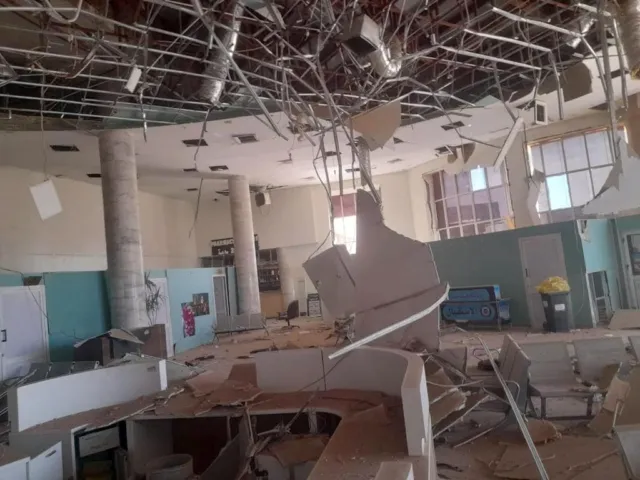
What would you want people to know about this situation and how urgent it is right now?
At this point we need to have a collective effort at the strategic level — not only at implementation or operational levels. Among humanitarian actors and global and national organizations, there is a need for greater advocacy to stop this war.
What is the cost if we fail to act?
If we fail to act or take quicker action, I believe more than half of the Sudanese people will die. We have friends, relatives, and neighbors passing away on a daily basis due to fighting, bombing, lack of food, and lack of access to health services and medications. In most residential areas of Khartoum, people have been living without power for four months — people who need insulin are dying simply because they can’t put their medicine in the refrigerator.

